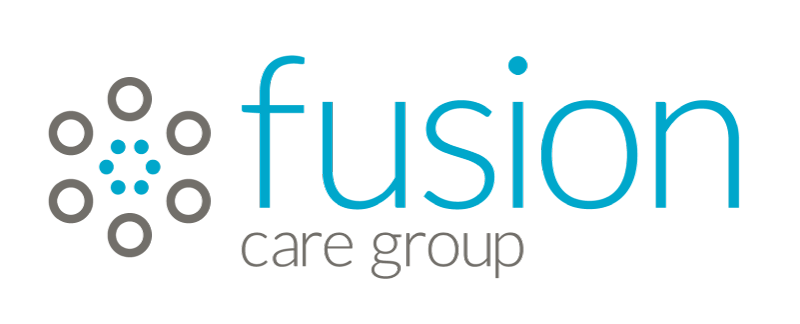ACT
Acceptance and commitment therapy (ACT) teaches mindfulness skills to help individuals live and behave in ways consistent with personal values while developing psychological flexibility. The key benefit of ACT is that it can help patients battle mental disorders like anxiety and depression without using medication. It teaches patients to change the way they relate to their negative thoughts and emotions so that these thoughts don’t take over.
Attachment Theory
Attachment-based therapy is a brief, process-oriented form of counseling. The client-therapist relationship is based on developing or rebuilding trust and centers on expressing emotions. An attachment-based approach to therapy looks at the connection between an infant’s early attachment experiences with primary caregivers, usually with parents, and the infant’s ability to develop normally and ultimately form healthy emotional and physical relationships as an adult. Attachment-based therapy aims to build or rebuild a trusting, supportive relationship that will help prevent or treat mental health conditions such as anxiety and depression.
Brief
Solution-focused brief therapy (SFBT) is a strength-based approach to psychotherapy based on solution-building rather than problem-solving. Unlike other forms of psychotherapy that focus on present problems and past causes, SFBT concentrates on how your current circumstances and future hopes.
CBT
Cognitive behavioral therapy (CBT) is a short-term form of behavioral treatment. It helps people problem-solve. CBT also reveals the relationship between beliefs, thoughts, and feelings, and the behaviors that follow.
Certified Trauma Specialist
coming soon…
Client Centered
Client-centered therapy, also known as person-centered therapy or Rogerian therapy, is a non-directive form of talk therapy developed by humanist psychologist Carl Rogers during the 1940s and 1950s. In this approach, you act as an equal partner in the therapy process, while your therapist remains non-directive—they don’t pass judgments on your feelings or offer suggestions or solutions.
CPT
Cognitive processing therapy (CPT) is a specific type of cognitive-behavioral therapy found to be effective for treating post-traumatic stress disorder (PTSD) in people who have experienced violence, abuse, natural disasters, or other traumatic events. CPT is short-term, typically conducted over the course of 12 sessions.
Art Therapy
coming soon…
Crisis Intervention
coming soon…
DBT
Dialectical behavior therapy (DBT) is a modified type of cognitive behavioral therapy (CBT). Its main goals are to teach people how to live in the moment, develop healthy ways to cope with stress, regulate their emotions, and improve their relationships with others.
DIR
DIR/Floortime is a popular type of play therapy where strong relationships are built between children and their parents (or children and their therapists) through play. A DIR/Floortime therapist or teacher creates activities and guides your family on how to best support your child’s development.
EFT
Emotion-focused therapy (EFT) is a therapeutic approach based on the premise that emotions are key to identity. According to EFT, emotions are also a guide for individual choice and decision making. This type of therapy assumes that lacking emotional awareness or avoiding unpleasant emotions can cause harm. It may render us unable to use the important information emotions provide.
EMDR
Eye movement desensitization and reprocessing (EMDR) is a fairly new, nontraditional type of psychotherapy. It’s growing in popularity, particularly for treating post-traumatic stress disorder (PTSD). PTSD often occurs after experiences such as military combat, physical assault, rape, or car accidents.
ERP
ERP therapy is a behavioral therapy that gradually exposes people to situations designed to provoke a person’s obsessions in a safe environment.
Existential
Existential therapy refers to a type of psychological therapy that emphasizes the existence of the human being. And the unique experiences we have. It helps individuals to come to terms with their own mortality and to find meaning in their lives.
Experiential
Experiential therapy is a type of mental health treatment that addresses past events and applies them to learning lessons about the present. It is a common type of therapy in substance use treatment and involves taking part in hands-on activities, such as expressive arts or exercise
Family Therapy
coming soon…
Gestalt
Gestalt therapy is a humanistic, holistic, person-centered form of psychotherapy that is focused on a person’s present life and challenges rather than delving into past experiences.
Gottman
Gottman therapy is a form of couples therapy that is based on the research of Drs. John and Julie Gottman. It is designed to help couples improve their relationship by increasing intimacy, communication, and conflict resolution skills. One of the unique aspects of Gottman therapy is that it uses a data-driven approach to understanding relationships.
Holistic
Holistic therapy is an alternative treatment to psychotherapy and implements methods such as reiki, yoga, tai chi, breathwork, meditation, etc along with other traditional psychotherapy treatments. Holistic therapy aims to achieve and maintain the balance and awareness between mind, body, and spirit.
Humanistic
Also known as humanism, humanistic therapy is a positive approach to psychotherapy that focuses on a person’s individual nature, rather than categorizing groups of people with similar characteristics as having the same problems.
IFS
Internal Family Systems (IFS) is an approach to psychotherapy that identifies and addresses multiple sub-personalities or families within each person’s mental system. These sub-personalities consist of wounded parts and painful emotions such as anger and shame, and parts that try to control and protect the person from the pain of the wounded parts.
Interpersonal
coming soon…
IRT
Imagery rehearsal therapy (IRT) is a form of cognitive behavioral therapy (CBT) used specifically to help improve your sleep by addressing nightmares. In fact, it’s the most frequently recommended therapy technique for severe nightmares.
MI
Motivational interviewing (MI) is a counseling approach developed in part by clinical psychologists William R. Miller and Stephen Rollnick. It is a directive, client-centered counseling style for eliciting behavior change by helping clients to explore and resolve ambivalence. Compared with non-directive counseling, it is more focused and goal-directed and departs from traditional Rogerian client-centered therapy through this use of direction, in which therapists attempt to influence clients to consider making changes, rather than engaging in non-directive therapeutic exploration.
Mindfulness
coming soon…
Narrative
Narrative therapy is a method of therapy that separates a person from their problem. It encourages people to rely on their own skills to minimize problems that exist in their lives.
Neurolinguistics
Neuro-linguistic programming is an approach to personal development and psychotherapy that was created by Richard Bandler and John Grinder in the 1970s. It is founded on the claim that there is an innate connection between the way our brains work (neurological processes), our language and behavior patterns, and our life experiences.
Parent-Child Interaction
coming soon…
PEI
Prolonged Exposure (PE) is a psychotherapy—or talk therapy— for PTSD. It is one specific type of Cognitive Behavioral Therapy. PE teaches you to gradually approach trauma-related memories, feelings, and situations that you have been avoiding since your trauma. By confronting these challenges, you can actually decrease your PTSD symptoms.
Play Therapy
coming soon…
Positive Parenting
coming soon…
Positive Psychology
Positive psychotherapy is one such therapeutic model. It focuses on supporting clients to use their inner resources to overcome challenges, understand and recognize areas of growth, and build resilience and a greater sense of well-being.
Present Day Focused
This therapy modality is called “present-centered” as the goal is to focus on the client’s current/present life while recognizing the connection between PTSD symptoms and current struggles. All the while doing this without focusing on past traumatic events.
Psychodynamic
Psychodynamic therapy is derived from psychoanalytic therapy, and both are based on the work of Sigmund Freud. Psychodynamic therapy is an in-depth form of talk therapy based on the theories and principles of psychoanalysis. In effect, talking about problems in a therapeutic setting can be extremely valuable for the individual. Comparatively, psychodynamic therapy is less focused on the patient-therapist relationship and more focused on the patient’s relationship with their external world.
Relapse Prevention
coming soon…
SMART Recovery
SMART Recovery, which is the acronym for Self-Management And Recovery Training, is a peer community that offers support to people with addiction. It’s a global abstinence-oriented organization that brings people together to help one another resolve their problems with addiction.
SFT
Solution-focused brief therapy (SFBT) is a strength-based approach to psychotherapy based on solution-building rather than problem-solving. Unlike other forms of psychotherapy that focus on present problems and past causes, SFBT concentrates on how your current circumstances and future hopes.
Somatic
Somatic therapy is a type of therapy that connects the mind and body through touch or movement. It is used to help process trauma that is stored in the body.1 Types of somatic therapy include somatic experiencing, the Hakomi Method, and eye movement desensitization and reprocessing (EMDR).
Strength-Based
Strength-based therapy is a type of positive psychotherapy and counseling that focuses on your internal strengths and resourcefulness, rather than on your weaknesses, failures, and shortcomings. The tenet is that this focus sets up a positive mindset that helps you build on your best qualities, find your strengths, improve resilience, and change your worldview to one that is more positive. Practitioners believe the main reason to discuss a patient’s problems is to discover the inner strengths clients can tap into in order to build solutions.
Substance Abuse
coming soon…
TBRI
TBRI®, which stands for Trust Based Relational Intervention, was developed by child development psychologists Dr. Karyn Purvis and Dr. David Cross at Texas Christian University, and integrates decades of attachment research with the latest advances in neuroscience. TBRI® is a product of the hard evidence we now have – not only of what happens to the developing brain when traumatized – but what we can DO about it.
TF-CBT
Trauma-focused cognitive behavioral therapy (TF-CBT) addresses the mental health needs of children, adolescents, and families suffering from the destructive effects of early trauma. The treatment is particularly sensitive to the unique problems of youth with post-traumatic stress and mood disorders resulting from sexual abuse, as well as from physical abuse, violence, or grief.
Trauma Focused
coming soon…
Yoga
coming soon…

